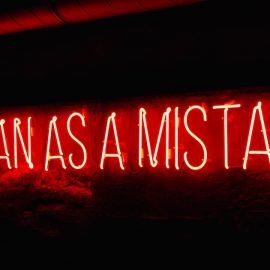

This article is an excerpt from the Shortform book guide to "Stolen Focus" by Johann Hari. Shortform has the world's best summaries and analyses of books you should be reading.
Like this article? Sign up for a free trial here .
What is Stolen Focus by Johann Hari about? What are the main takeaways of the book?
If you’ve been struggling to concentrate, you should know you’re not alone. In Stolen Focus, Johann Hari makes the case that we have a societal attention crisis: We’re all losing our ability to concentrate, which means we can’t progress on our individual goals.
Read below for a brief overview of Johann Hari’s Stolen Focus.
Stolen Focus by Johann Hari
In Stolen Focus, Johann Hari (author of Lost Connections) makes the case that we have an attention crisis: We’re losing our ability to concentrate. He argues that the crisis is a result of outside forces stealing our focus—not of lazy individuals not trying hard enough to concentrate. Hari outlines the factors creating the crisis and his approach to solving it.
Hari believes we must fix the attention crisis for three reasons: 1) If you’re unable to pay attention, you can’t move forward on your goals. 2) As a society, we can’t confront the challenges we face without focusing on them to see what we need to do and then act. 3) Because the attention crisis is a result of human action, fixing it requires human action.
Published in 2022, Stolen Focus grew from Hari’s own experience of being increasingly unable to focus. He decided to research the problem and how best to deal with it. He read the work of scientists and activists on the subject, and he met some of them to see their experiences first-hand. (Shortform note: In addition to his journalism work, Hari is known for making admitted missteps earlier in his career.)
Hari approaches the problem of focus in a holistic way. Many authors have written about the benefits of, for example, disconnecting from technology. But Hari makes a comprehensive diagnosis of society’s difficulty in concentrating, including everything from our food to the economy, and he proposes societal solutions rather than individual tips and tricks.
The Attention Crisis
Hari argues that an attention crisis is undermining our cognitive ability to do three things: find flow (a state of intense focus), read, and think. Hari explains why each of these activities is becoming harder and what that means.
Proof #1: It’s harder to find flow: Flow is our highest form of sustained attention, and Hari argues that the distractions of modern life are destroying it.
Proof #2: It’s harder to read: Hari argues that reading—the most common flow experience—is also disappearing from people’s lives. We engage less with the complex cognitive task of reading and, as a result, we are changing how we engage with complex topics.
Proof #3: It’s harder to think: Hari’s final proof of the attention crisis is that we’re struggling to think. Our idea of concentration is being laser-focused on a specific task. However, our minds also need to wander purposefully to make connections and insights, which the constant distractions of modern life impede.
The Factors Contributing to the Attention Crisis
Hari explores the reasons or factors contributing to the attention crisis. He discusses seven factors that Hari believes are undermining our ability to focus: the failure to explore ADHD’s underlying causes, the lack of play in children’s lives, sleep deprivation, toxins in our food and environment, distracting technology, information overload, and too much emphasis on personal responsibility to solve attention problems.
Factor #1: Failure to explore ADHD’s causes: The first factor contributing to the attention crisis is how we treat ADHD, attention-deficit/hyperactivity disorder, which describes children’s inability to concentrate. Hari believes we’re not addressing it effectively. Too often, the reaction to children diagnosed with ADHD is to medicate them instead of addressing the underlying reasons and solving them.
Hari points out that ADHD numbers have climbed over the past few decades. Today, 13% of teenagers in the US have an ADHD diagnosis, and many of them take stimulants to manage it.
Factor #2: Not enough time and space for kids to play: The second factor contributing to the attention crisis also affects children. Hari believes that how children spend their time contributes to rising levels of difficulty in paying attention.
Factor #3: Not enough sleep: The third factor contributing to the attention crisis is sleep deprivation. Hari believes we’re not getting enough sleep, and it’s diminishing our ability to focus.
Hari argues that sleep deprivation is not an isolated problem. The average sleep time an adult gets each night is an hour less than it was at the beginning of the 20th century. For children, the lost sleep time amounts to an hour and 25 minutes. (Shortform note: The percentage of adults sleeping significantly less than the recommended seven hours a day is so high that the CDC declared it a public health epidemic.)
Hari cites two possible explanations for widespread sleep deprivation:
- Artificial light. Evolution made humans sensitive to light, but artificial lights interfere with our programming. Earlier humans would rise with the sun and go to sleep by sunset, but they also got a second wind around four in the afternoon, just as the sun began to set. That helped them reach safety or finish tasks before sunset. Now, Hari says, we don’t notice that change in natural light because we rely on artificial lighting. We still get that second wind but later in the evening, when we’re supposed to be getting ready for sleep.
- Consumer capitalism. Sleep deprivation fuels the economy. Our economy relies on people consuming and producing as much as possible, and that can only happen while they’re awake.
Factor #4: Too many harmful chemicals: The fourth factor contributing to the attention crisis also disrupts the normal functions of our brains. According to Hari, toxins disrupt our brain’s chemistry and make it harder to focus.
Factor #5: Too much distracting technology: The fifth factor contributing to the attention crisis is technology. Hari argues that the technology we rely on tracks our every move and tailors the content we see to keep us hooked.
Factor #6: Too much information, too fast: The sixth factor Hari identifies as contributing to the attention crisis is information overload, which makes it difficult to focus long enough to process what we’re seeing and hearing.
Factor #7: Too much emphasis on individual responsibility: The final factor contributing to the attention crisis is how we’ve attempted to deal with it. Hari believes the solutions put forward for the attention crisis are lacking because they focus on personal responsibility.
A Way Out of the Attention Crisis
While Hari agrees there are useful tricks for disciplining your focus, and he practices some himself, he believes they’re not enough. His proposed solution for the attention crisis has two parts: systemic changes around technology, work, and school, and a citizen-led movement.

———End of Preview———
Like what you just read? Read the rest of the world's best book summary and analysis of Johann Hari's "Stolen Focus" at Shortform .
Here's what you'll find in our full Stolen Focus summary :
- The seven factors causing the current attention crisis
- Johann Hari's three-part solution to gaining your attention back
- Why society needs to change, not just individuals






